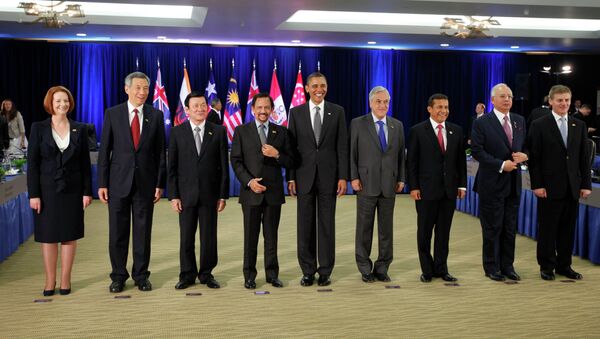The "fast-track" legislation comes as Obama seeks a sweeping trade agreement with eleven Pacific nations. It would renew presidential authority to present trade agreements that Congress can endorse or reject, but not amend.
The Trans-Pacific Partnership proposes a trade agreement involving the United States, Japan, Vietnam, Canada, Mexico and seven other Pacific-rim nations.
The White House expects to use the special authority to remove trade barriers between the participating nations, which account for a hefty 40 percent of the global economy and more than one-third of the global trade.
"When 95% of our potential customers live abroad, we must be sure that we are writing the rules for the global economy, not a country like China," Obama said.
“Our exports support more than eleven million jobs, and we know that exporting companies pay higher wages than others. Today we have the opportunity to open even more new markets to goods and services backed by three proud words: Made in America,” he added.
According to the President, the bill would allow the US to create new rules for trade that will "avoid the mistakes of the past, to take advantage of new opportunities and to adhere to our values."
Obama made it clear that he would only sign a document that would "help ordinary Americans to go forward."
The implementation of the Trans-Pacific Partnership is a high point of the Obama Administration’s foreign agenda. The agreement provides for an almost complete abolition of customs duties between the member countries. It was initially joined by Chile, New Zealand, Brunei and Singapore and later by the United States and other Pacific countries of the Americas, Australia, Japan and several other nations.



